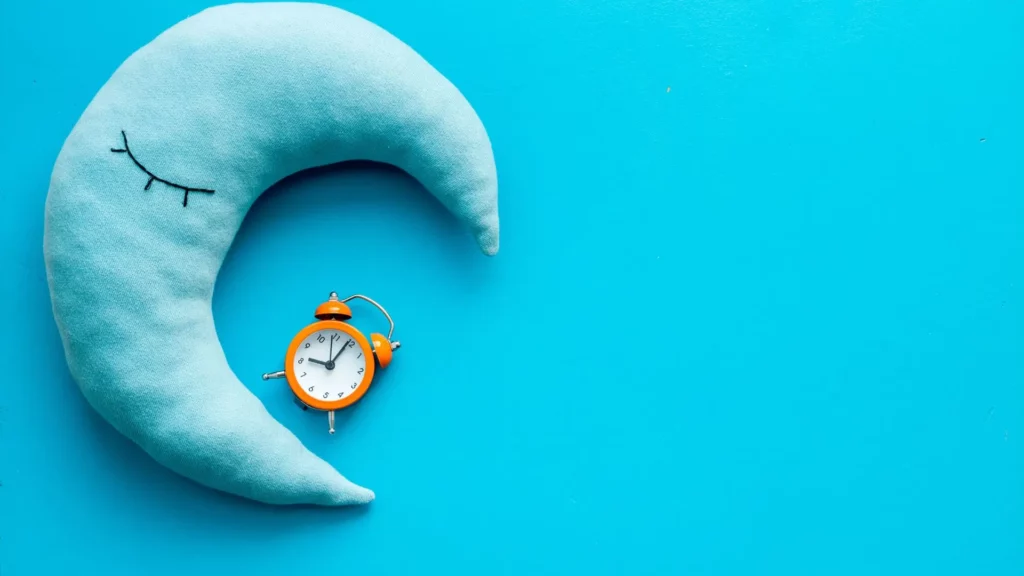What You’ll Learn
- What are the signs that a child may have a sleep disorder?
- How can lack of sleep be mistaken for ADHD?
- How can lack of sleep affect kids who do have ADHD?
- How can parents help kids with ADHD get more sleep?
Quick Read
Trouble paying attention, impulsive behavior, and forgetfulness are often signs of ADHD (attention-deficit hyperactivity disorder). But they can also be signs of lack of sleep.
Sleep disorders in children are rare, but they can have a big impact. Kids with sleep disorders have trouble falling asleep or staying asleep throughout the night. Some kids with sleep disorders experience anxiety, including night terrors. Others have a medical issue like sleep apnea or asthma, which gets in the way of their breathing and make it hard to stay asleep. In the morning, they’re often irritable and have trouble paying attention in class. Lack of sleep makes children more likely to act out or throw a tantrum.
ADHD can look quite similar. Children with ADHD have a hard time staying focused. They’re easily distracted and don’t follow directions all the time. They act our or throw tantrums when they are frustrated.
Figuring out the right diagnosis can be tricky, because it’s common for kids with ADHD to have trouble sleeping. That might be because they have a lot of excess energy or because they take stimulant medication that interferes with sleep. It’s also true that lack of sleep can make ADHD symptoms worse.
Because symptoms can look so similar, it’s important for clinicians to rule out sleep disorders before diagnosing ADHD. It’s not common for children to have such severe sleep issues that they’re misdiagnosed with ADHD, but it can happen. For kids with ADHD who do not have a sleep disorder but do have trouble sleeping, behavioral changes can help. This could be a more consistent nighttime routine or limiting screen time before bed. Adjusting the dosage or timing of stimulant medications can also help.
Full Article
Trouble paying attention. Forgetfulness. Poor impulse control. These are behaviors commonly associated withADHD, but they can also be signs of lack of sleep. And since many kids with ADHD are sleep-challenged, the two issues can at times be hard to tease apart.
Parents sometimes ask if a child might be misdiagnosed with ADHD when what’s causing his symptoms might really be a lack of sleep. And we hear anecdotes from parents of children whose ADHD symptoms diminished or disappeared when their sleep problems were solved. Does that mean they didn’t have ADHD in the first place?
Sleep disorders are rare in children, notes David Anderson, PhD, a clinical psychologist at the Child Mind Institute, so it is not likely that many kids have sleep disorders mistaken for ADHD, or both ADHD and a sleep disorder. But it is the case that not getting enough sleep (even if your child doesn’t qualify for a sleep disorder) can cause or worsen ADHD symptoms. Hence solving sleep issues can help reduce symptoms.
A clinician doing a careful evaluation should always consider alternate explanations for ADHD symptoms before making an ADHDdiagnosis, says Dr. Anderson. “As part of a good assessment for ADHD,” he says, “we want to rule out a number of other issues that could masquerade as ADHD symptoms.”
Besides sleep issues, other causes could include depression, trauma, and anxiety, all of which can present similar symptoms and, not incidentally, cause a child to be unable to sleep. Looking at symptoms like hyperactivity, distractibility and inattention in the context of all of a child’s symptoms is key to identifying the source.
Signs there is a sleep disturbance
Lack of sleep can be the result of anxiety, including night terrors, or a medical condition like sleep apnea or asthma that affects breathing and makes it difficult to sleep soundly. Although only a small percentage of children are diagnosed with sleep disorders, ruling out a more serious medical condition is an important part of an initial psychiatric evaluation, notes Dr. Anderson. Things to look out for include:
- Trouble falling asleep
- Trouble staying asleep
- Trouble waking up in the morning
- Waking up screaming or in a panic
- Waking up coughing
- Labored breathing or pauses in breathing during sleep
- Strange noises during sleep
- Irritability
- Falling asleep in class
- Distractibility and difficulty paying attention
Though there are guidelines for how much sleep kids should be getting at every age, individual children vary in how much they need, so sleeping less than is typical is not an instant indication that something is wrong. However, less sleep than the average child of that age should be cause for further investigation. And lack of sleep can be impacting a child’s behavior even if it doesn’t reach the level of a full-blown disorder.
Signs there is ADHD
An estimated 6-10% of the population has ADHD, and it is usually apparent by early childhood. Signs to look out for include:
- Trouble sustaining focus on activities they may find boring or not rewarding
- Trouble listening and following directions
- Trouble staying seated, fidgeting
- An excessive amount of energy
- Tendency to interrupt, blurt things out
- Easily distractible
- Difficulty organizing
- Forgetfulness, tendency to lose things
- Impatience
Dr. Anderson explains that while all kids exhibit some of these behaviors, when assessing whether a child has ADHD, “we’re trying to establish whether there is an intensity that’s higher than for other kids in that age group, and whether it’s impairing the child’s functioning across multiple settings. Those criteria tell us there may be a presence of ADHD.”
What if a child has both?
Sleep and ADHD can be a bit of a chicken and egg situation. “Kids with ADHD commonly have a much higher energy level than other kids,” explains Dr. Anderson. “That may translate to having difficulty settling down to actually go to sleep, which could mean getting less sleep per night.”
It’s also the case that ADHD medication can be linked to sleeplessness in some kids, if it’s still active when they are trying to fall asleep. So it’s also possible that lack of sleep — short of a diagnosable sleep disorder — could be exacerbating a child’s ADHD symptoms.
And a small number of children—sleep disturbances in children are quite rare—may have both ADHD and an undiagnosed sleep issue. They are not necessarily misdiagnosed with ADHD, but treatment for the sleep disorder could diminish their symptoms.
What to do
If a child taking stimulant medication is having trouble sleeping, you should consult your doctor, who might reduce the dosage or adjust the timing of their medication so it’s not in effect at bedtime.
If lack of sleep without any discernable medical issue appears to be causing a child problems, then a visit to a sleep specialist, psychologist, or the child’s pediatrician might be the next step. Dr. Anderson explains that they can help “create a behavioral plan with the parent that’s going to help the child get what we think is the more appropriate amount of sleep.” This might include implementing a more consistent bedtime routine, limiting screen time before bed, or other behavioral strategies to help improve sleep hygiene.
If sleep apnea or another medical issue is suspected, then a consultation with a medical doctor is the next appropriate step, for a sleep study or other tests to see if a medical intervention is necessary.
If there is the possibility of serious sleep issues, Dr. Anderson emphasizes that a careful clinician would be cautious in diagnosing ADHD. If a successful treatment of a sleep disturbance leads to a decrease in ADHD symptoms, then it may be appropriate to reassess the ADHD diagnosis.
Dr. Anderson stresses that few children have sleep problems severe enough to be misdiagnosed as ADHD. Still, he says, “they’re definitely something to take into account when evaluating ADHD symptoms.”
Frequently Asked Questions
How does ADHD affect sleep in kids?
ADHD affects sleep in kids by causing them to have higher levels of energy, which can lead to difficulty settling down to fall asleep.
How does lack of sleep affect ADHD?
Lack of sleep often makes ADHD symptoms worse.
Original source: Child Mind Institute
Writer: Katherine Martinelli
Clinical Expert: Dave Anderson, PhD



